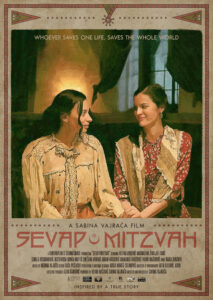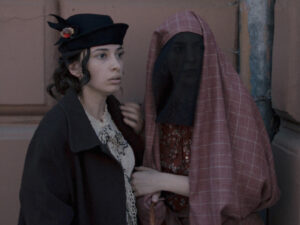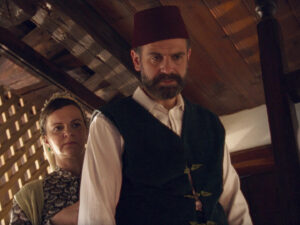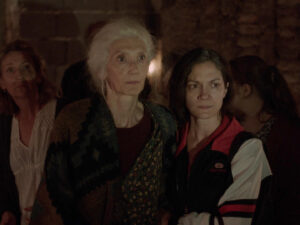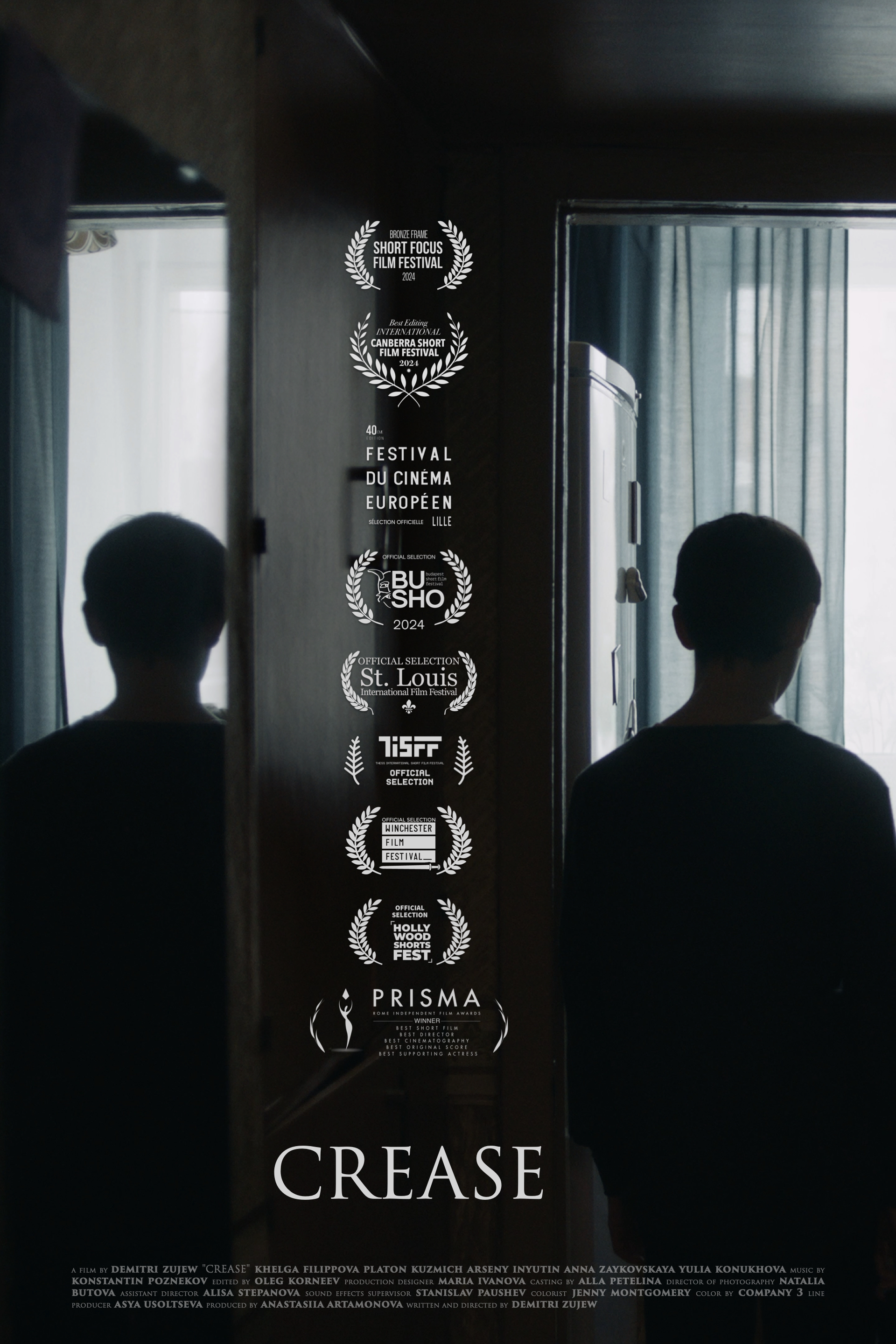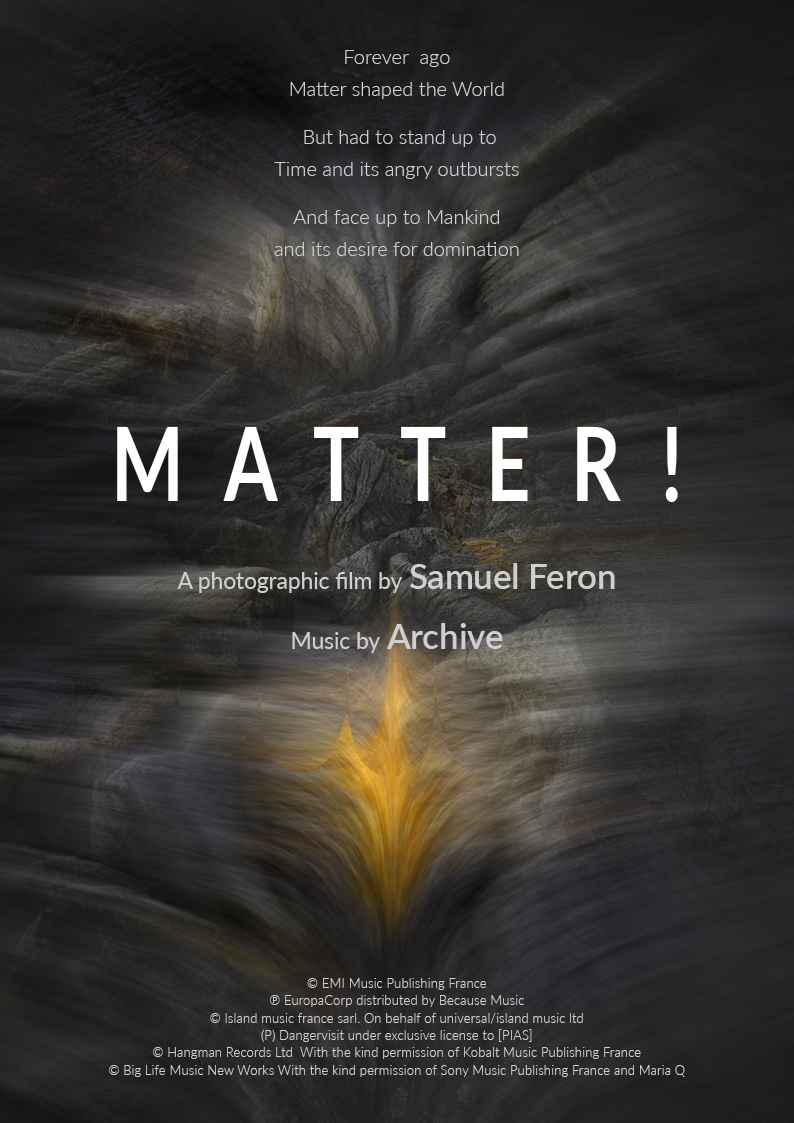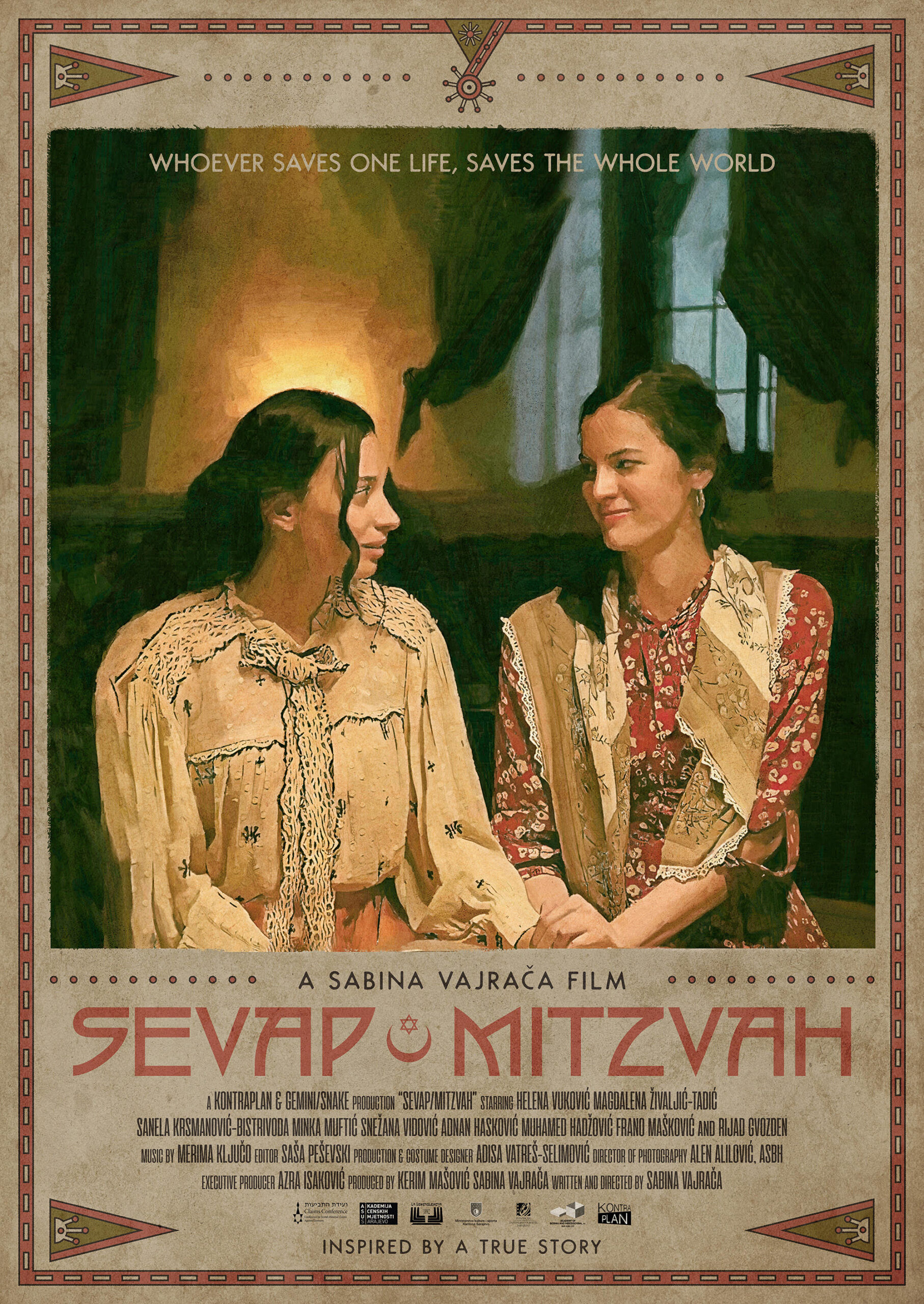
Oscar Qualifying Short Film Review “Sevap/Mitzvah”
WATCH THE TRAILER HERE
First, the Recap:
The initiatives we embark on and the unknown, successive ripple effects they bring to bear. We always wish to believe we’re aware of what decisions we make and the outcomes that follow, especially when it involves striving to do what’s good, not only for ourselves, but for others as well. However, the true capacity to control any given circumstance and its results can be more enigmatic and elusive than we might want to admit. Therefore, does this mean we DON’T keep looking to make a difference, more so when the conditions are far less than ideal? It is 1941 Sarajevo, Bosnia/Herzegovia, and a Muslim woman named Zejneba (Helena Vukovic) is treading dangerously but fearlessly to protect her Jewish best friend Rifka (Magdalena Zivalic Tadic) and her family from being noticed by the occupying Nazi force looking to take them away. But, will this be an endeavor worth risking everyone involved? What far-reaching effects will it possibly bring to life?
Next, my Mind:
It is an absolutely inspiring, deeply heartening, candidly compelling, highly necessary exploration of the power and perseverance of the human spirit that sees beyond all barriers to become an example of what it is to possess unshakable courage and unequivocal kindness towards ALL that’s deftly portrayed through this 19-minute short film from writer/director/producer Sabina Vajraca, producer Kerim Masovic, co-producer Ivo Kaunitz, and executive producer Azra Isakovic, which just had its most recent screening at the prestigious 2023 HollyShorts Film Festival AND is now a qualifying short for 2023 Oscar nomination consideration, hence why I am choosing to once more re-share this previous review of the film. Right from the start, this critic must express how refreshing and consistently encouraging it is to see filmmakers willing to provide us with stories like the one that’s delivered, for the sheer relevancy and needed accessibility of the grander themes being presented here are ones that DO, and SHOULD, resonate potently in this modern world that’s overwrought currently with so much of the OPPOSITE of what’s shown in this film’s abbreviated runtime.
Founded on true events and cleverly utilizing the film’s title and its word’s parallel meanings to beautifully affecting impact, the narrative finds a Muslim woman in WWII-era Sarajevo making a desperate, not fully accepted, but wholly, undeniably uplifting series of choices in the name of overlooking differences in religion while embracing the sway of the human heart to illustrate how we SHOULD see and treat others. It is briskly paced, flowing seamlessly from sequence to sequence, and intelligently executed to have the best, most stirring influence over and on us as the viewer, and isn’t just some average or cliched view of “can’t we all just get along” but rather a fully awareness-raising journey that not ONLY showcases what acts of selfless compassion are worth, but that the subsequent repercussions of those decisions can manifest future, even reciprocated efforts that change someone’s life just as strongly as the original actions.
I completely love and respect how the film studies the dichotomy of perspectives that come to pass within the context of the primary characters we see, especially when its contained amongst those of the SAME religious affiliation, as this brilliantly drives home the cornerstone point that genuine love and acceptance of other HUMAN BEINGS trumps beliefs, discrimination, hate, and perhaps even misguided ideologies about how to see the world. Yet, the film addresses all of this with a sincere conviction that isn’t remotely meant to step on anyone’s toes or remotely disparage anyone’s personal choice of faith. Again, this is a portrait of the fact that regardless of what you hold as gospel, there’s the means to be humble, hospitable, and gracious to one another. Also with this film, it’s about standing up to pure evil (aka: Nazis and their tragically warped agenda) in addition to these other concepts while choosing to likewise remain steadfast in the face of disagreement and resistance. It all culminates in a finale that brought this critic to tears with its profoundly formidable message. Pay it forward, folks, pay it forward.
Vukovic embodies, with pure, dynamic, wonderfully controlled energy, the core spirit of the film’s objectives through her role as Zejneba, a Muslim woman living in Nazi-occupied Sarajevo who’s taken it upon herself to support an outlook on life that transcends religious and racial animosity paired with dissension from friends in order to exemplify the strength of unconditional friendship, love, and desire to overcome any obstacle for the sake of a greater purpose and the worth of each and every soul. Fortunate to have a supportive husband, her measures to save her childhood best friend put her and those closest to her in the crosshairs of an unforgiving enemy. Yet, it is her fortitude that will define the very nature of benevolence that will cause an unanticipated, proverbial return on investment that will change lives forever, both present and in the future. It’s a performance that demands both subtlety yet also a fervency that encompasses Zejneba’s entire being, and Vukovic delivers this with total commitment and fire.
Primary supporting roles start with Tadic as Zejneba’s best friend Rifka, a Jewish woman who, along with her family, find themselves the targets of a renewed move by the Nazis to clean out the town of anyone of Jewish faith. Almost caught in the middle of it, Rifka receives a timely reprieve thanks to Zejneba’s quick thinking and actions, which saves not only her, but her husband and children as well. What she doesn’t know is what the future holds and how this incredible moment of mercy will have an equally incredible endgame for them both. Sanela Krsmanovic plays Bahra, a Muslim woman whose daughter Zejneba has helped watch over when needed and who remains largely concerned and disconcerted with her friend’s choices that put them all in possible peril. Muhamed Hadzovic is Izet, Bahra’s husband and brother to Zejneba’s husband who sides strongly in his wife’s worries about Zejneba’s decision to take in Rifka and her family.
Adnan Haskovic is Mustafa, Zejneba’s husband who, unlike his brother, steadfastly stands in his Muslim faith yet also showcases what true empathy for other human beings is and fully backs up Zejneba’s deeds, firmly standing up to his brother’s protestations. Frano Maskovic plays Josef, Rifka’s husband who, along with their two children, have one of the more quietly intense encounters with the town’s “keepers” when Zejneba is attempting to get them to safety. Finally, Rijad Gvozden arrives as one of the Nazi-supporting Utashas going through Sarajevo to “collect” the resident Jews and take them away, Ivica, whom has some past tie to Zejneba that becomes key during the interrogation on the street that occurs when having stopped her and the thinly “disguised” Josef and his children. Suffice it to say, and this is no exaggeration, each and every one of these aforementioned actors tackle their roles with well-founded, believable, and adeptly presented performances that suit each character excellently, with poise and appropriate vigor.
Additional supporting appearances are made by Emina Muftic, Reshad Strik, Snezana Vidovic, Asja Pavlovic, Amar Selimovic, Uma Fijuljanin, Dalia Kalamujic, Rajko Cajic, Aton Ilaj Kurt, Omar Mahmutagic, Ela Selimovic, Darijan Mehmedbasic, Adis Marevac, Maris Maskovic, Emir Vajraca, and Jasma Buha among a host of others. To you all, I honestly extend my congratulations for your performances, because as far as I am concerned, there are no small parts. So, in total, “Sevap/Mitzvah” carries its intent with ardent passion, riveting dramatic flair, and a heart greater than the world on its sleeve in order to demonstrate the obligation we have as people on this planet to incorporate the magnitude of harmony and dogged, undeterred determination to see peace between us that we too can conceivably see manifested outcomes as depicted here that eclipse ALL beliefs, races, creeds, genders, etc– and even time itself.
STAR RATING (out of 5):
As always, this is all for your consideration and comment. Until next time, thank you for reading!
